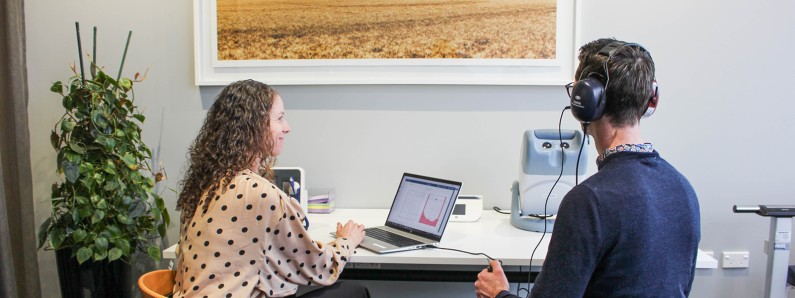
A routine Health Check transformed my health
Published: 5 December 2024
By: Brad Meek
I used to believe I was living a balanced and healthy lifestyle, much like many Kiwi men, juggling the demands of working and family.
In my daily work, I observe the rising cost of joint replacements, heart conditions, and other medical conditions. Sadly, in many ways, our nation’s health is deteriorating. This has made me realise the importance of doing what’s in my control to keep myself in good health.
When I’m being good, I bike to work most days of the week and incorporate some form of movement, either walking or running, over the weekend. Off the back of this, I felt I would be in pretty good health.

What is a Health Check?
A Health Check is designed to give you valuable insights into your current health and wellbeing. It identifies strengths in your overall health and potential areas to work on and seek support with. While they’re not a replacement for professional advice or treatment, they give a great informational overview into what’s going on with your health.
When my workplace, UniMed, announced they were offering free Health Checks, I went along willingly. I didn’t think I would make any life-changing discoveries that I didn’t already know about. This was going to be just another thing to tick off the never-ending to-do list. I went into the Health Check interested to see if there would be any surprises, and to learn what I could do about them now to avoid issues in the future.
What's the process for a Health Check?
The first part of the Health Check involved completing a brief questionnaire prior to attending that asked about my general health. Then, a nurse tested my hearing and vision, lung function, cholesterol, oxygen saturation, diabetic risk, and body composition. Overall, the process was relatively quick and efficient. However, when I looked at my results, I was shocked by my blood pressure result.
It was very high, 165/114. For reference, the ideal is often said to be less than 120/80, and while stand-alone recordings can’t and shouldn’t diagnose hypertension, repeated recordings of more than 140/90 can. At first, I didn’t quite believe it. High blood pressure? I felt absolutely fine. While I did have a relatively stressful job, I ate well and exercised regularly.
This led to the next realisation, the importance of talking with your family about your family health history. A quick chat confirmed that most of my family is on medication for hypertension. It’s almost our baseline to have hypertension. But, to act on something, you need to know the problem exists and have it identified or know your family’s history and actively get checked.
This should be common sense for me, since I work in health funding, but it wasn’t and I’d missed it.

What happens after your Health Check?
The Health Check team were great at explaining the result and recommended that I follow up with my doctor.
Sitting in my doctor’s office a week later, and my blood pressure was taken again. The numbers confirmed what the initial test had suggested - I had high blood pressure. It was a strange moment of realisation. On the outside, I seemed healthy, but inside, my body was sending warning signals.
The Doctor sent me for further blood tests and recommended I continue to self-monitor for the next couple of weeks. The next GP appointment would help confirm if these were isolated results (perhaps a symptom of what is called ‘white coat syndrome’) or if my blood pressure was consistently high. White Coat Syndrome refers to when your blood pressure is elevated in a doctor’s office but normal at home – often the anxiety of being in a medical environment can make a person’s blood pressure rise. However, the two weeks passed, and the high blood pressure continued.
During my follow-up the Doctor confirmed that I had hypertension, and recommended medication to reduce my blood pressure. We also discussed lifestyle changes like improving my diet, continuing exercise and relaxation. One of my recent changes is to add in 5 minutes of stretching and 10 minutes of meditation in the morning, and this seems to make a significant difference.
Feeling positive after my Health Check
When given an opportunity, it’s always a good idea to look at your health with a proactive lens.
Taking control of my health has been an empowering journey. What started as a simple work perk turned into a significant wake-up call. I learned that even without symptoms, underlying health issues could still be present and ignoring them only compounds the risk.
If given the opportunity, I would recommend that everyone get a Health Check. Our health is our biggest asset. While my Health Check changed my life, it also gave me peace of mind that other areas of my health were going along alright. Thanks to my Health Check, I’ve got a better chance of living a fuller, longer and healthier life with my family.

